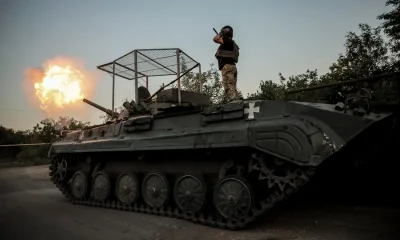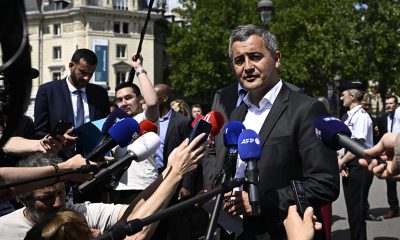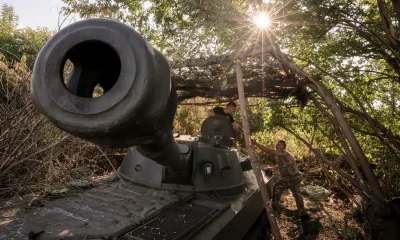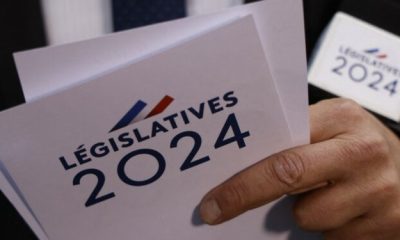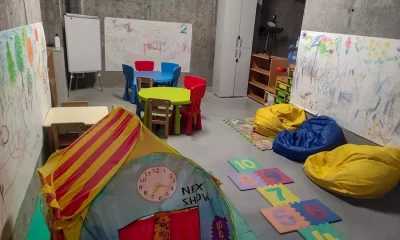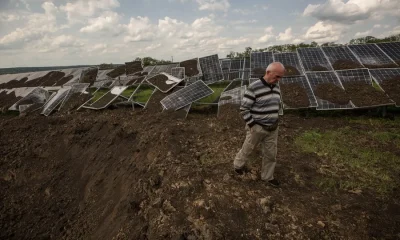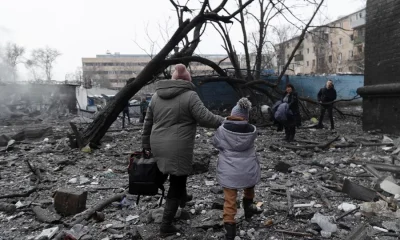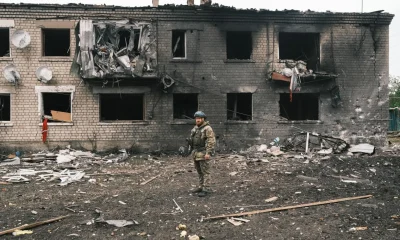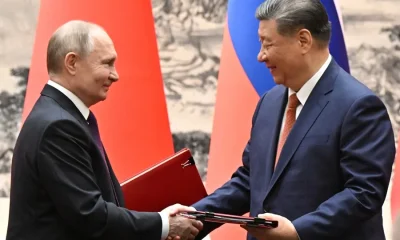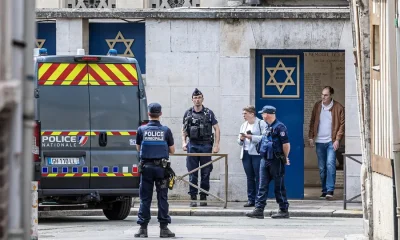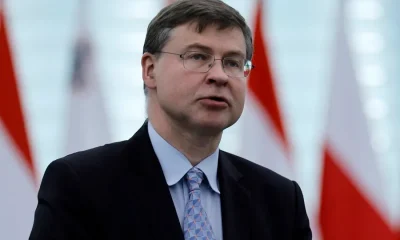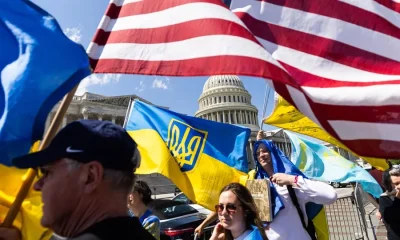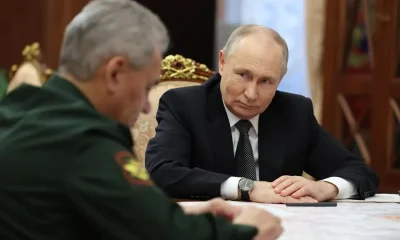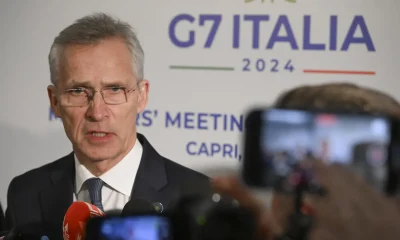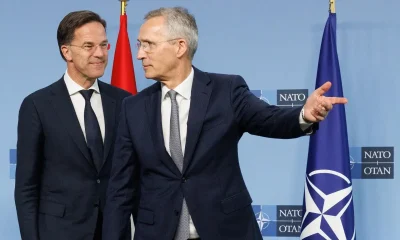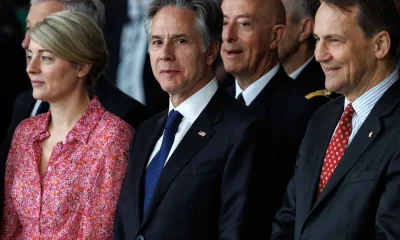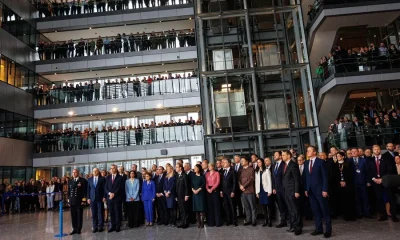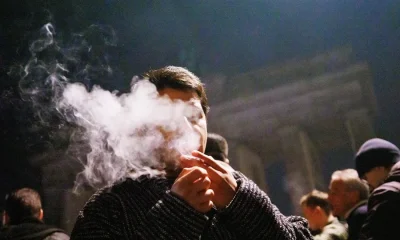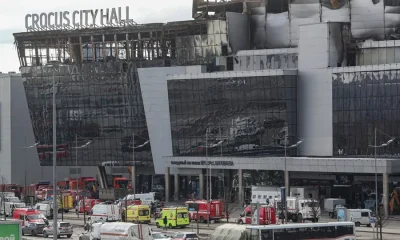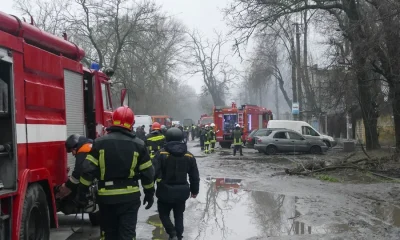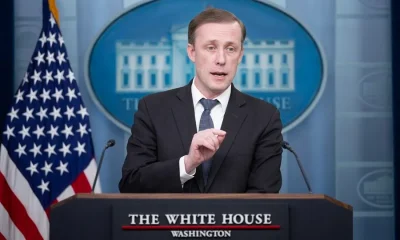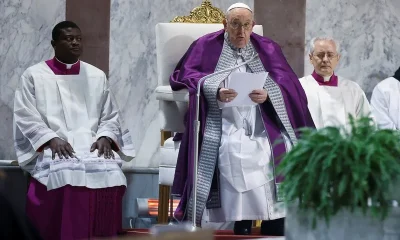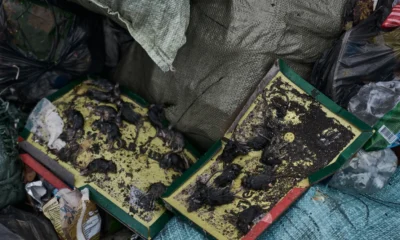International
Germany, France and Poland commit to intensifying the supply of weapons to Ukraine
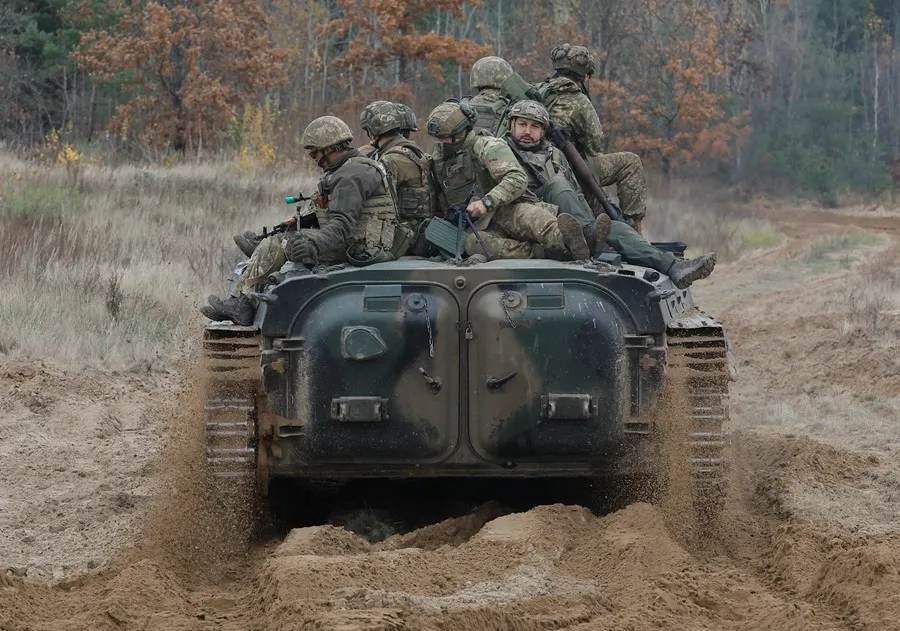
German Foreign Minister Olaf Scholz; French President Emmanuel Macron and Polish Prime Minister Donald Tusk pledged this Friday to intensify their military support for Ukraine with a new coalition of long-range missiles and the purchase of more ammunition.
“We will not give up on our support,” Scholz stressed at the end of the meeting in the Weimar Triangle format.
Scholz also highlighted the agreement of the European Union (EU) to promote a specific military support fund to Ukraine endowed with 5 billion euros for this year, the reinforcement of the community training mission of Ukrainian soldiers, as well as the decision to use the interests of Russian assets frozen in Europe to support the purchase of weapons for Kiev.
Next Tuesday, a new meeting of the Contact Group for the Defense of Ukraine will be held at the US air base in Ramstein, in Germany, in which that new coalition of long-range missiles will be proposed, although the German Chancellor himself has categorically refused to send Taurus missiles to Ukraine, which have the ability to hit targets 500 kilometers away.
With respect to the Taurus, there are differences even within the German Government where part of the Greens and the Liberal Party (FDP) are in favor of sending it, despite the rejection of it by the Social Democratic Party (SPD) and Scholz.
On two occasions the opposition has taken advantage of the differences within the Government to try, unsuccessfully, to carry out a resolution in Parliament asking for the sending of the Taurus.
Nevertheless, the government coalition adopted a resolution in the Lower House in February in which it calls for “wide-ranging weapons systems and ammunition” for Ukraine.
Scholz maintains that these weapons cannot be used without the participation of German soldiers and has asked not to divert attention with a debate about a single type of weapons.
Macron pointed out that the coalition is open to all countries, as well as the many others that exist for the supply of F16 fighters and drones for Ukraine, for example.
The French president, who reiterated that the security and future of Europe is at stake due to the Russian war in Ukraine, explained that the three countries support the Czech initiative, which at the Munich Security Conference in February announced that it has found up to 800,000 NATO standard munitions that can be sent to Ukraine if the necessary funding is found.
At the moment it has commitments for 500,000 pieces of ammunition as a result of the initiative, which Germany had already joined.
Macron said that the three countries will work with the industry in Europe and in Ukraine to promote the production of ammunition in the territory of the invaded country.
The French president pointed out that boosting European production is a priority, but that, “if this is not possible fast enough or in the necessary volume, we will be able to mobilize funding to buy ammunition and military equipment in other countries to support Ukraine.”
The Polish Prime Minister, Donald Tusk, pointed out in turn that it is very important for him that the Weimar Triangle has been reactivated and that the trilateral meeting has served to make concrete decisions.
He maintained that this shows that “the malicious rumors, the disputes or differences between the capitals are not true,” he said in reference to the differences between the French president and Scholz on some issues such as the possible sending of European or NATO troops to Ukraine.
“Today we have spoken with one voice, especially about the security of our continent and our countries.”
Tusk informed his two counterparts about his recent visit to Washington and the climate in the US capital in the context of the presidential elections, in which Republican candidate and former President Donald Trump aspires to return to the White House.
Trump has already threatened not to help Europe if the Old Continent does not pay for its defense and would also have told the Hungarian president, Viktor Orbán, that he will not give “a penny” to Ukraine if he becomes president of the United States again.
“The three of us are aware that we Europeans have the responsibility for transatlantic relations and our future, and that can’t be changed by anyone, no matter what happens politically,” he said.
International
Rubio rules out 2028 presidential bid if Vance runs

U.S. Secretary of State Marco Rubio said he would not seek the presidency in 2028 if current Vice President JD Vancedecides to run as the Republican nominee to succeed President Donald Trump.
“If JD Vance runs for president, he will be our candidate, and I will be one of the first people to support him,” Rubio said in an interview with Vanity Fair, in which he appeared alongside other senior members of the presidential cabinet.
Rubio, 54, and Vance, 41, are widely viewed as two of the leading Republican figures who could headline the party’s ticket in the 2028 election. Under the U.S. Constitution, Trump is barred from seeking another term after completing two presidential mandates.
In a lighthearted moment during the interview, Vance jokingly offered photographers $1,000 if they managed to make him look better than Rubio in the photos. Both leaders have received public backing from Trump, who last October floated the idea of a joint ticket featuring Rubio and Vance, without clarifying who would lead it.
“I think that if they ever teamed up, they would be unstoppable. I don’t think anyone would run against us,” Trump said at the time.
White House Chief of Staff Susie Wiles, who also took part in the interview, confirmed that Trump does not intend to violate the 22nd Amendment, which prohibits a third presidential term, though she acknowledged that the president is “having fun” with speculation about a possible return to office.
Rubio, the son of Cuban immigrants, served as a Republican senator from 2010 to 2025. He sought the party’s presidential nomination in 2016 but was defeated by Trump after a bruising primary contest. His name was floated as a potential vice presidential pick in 2024, but Vance ultimately secured the spot. After taking office, Trump appointed Rubio as secretary of state, making him the first Latino to hold the position.
International
Authorities search for armed and dangerous suspect in fatal Brown University attack
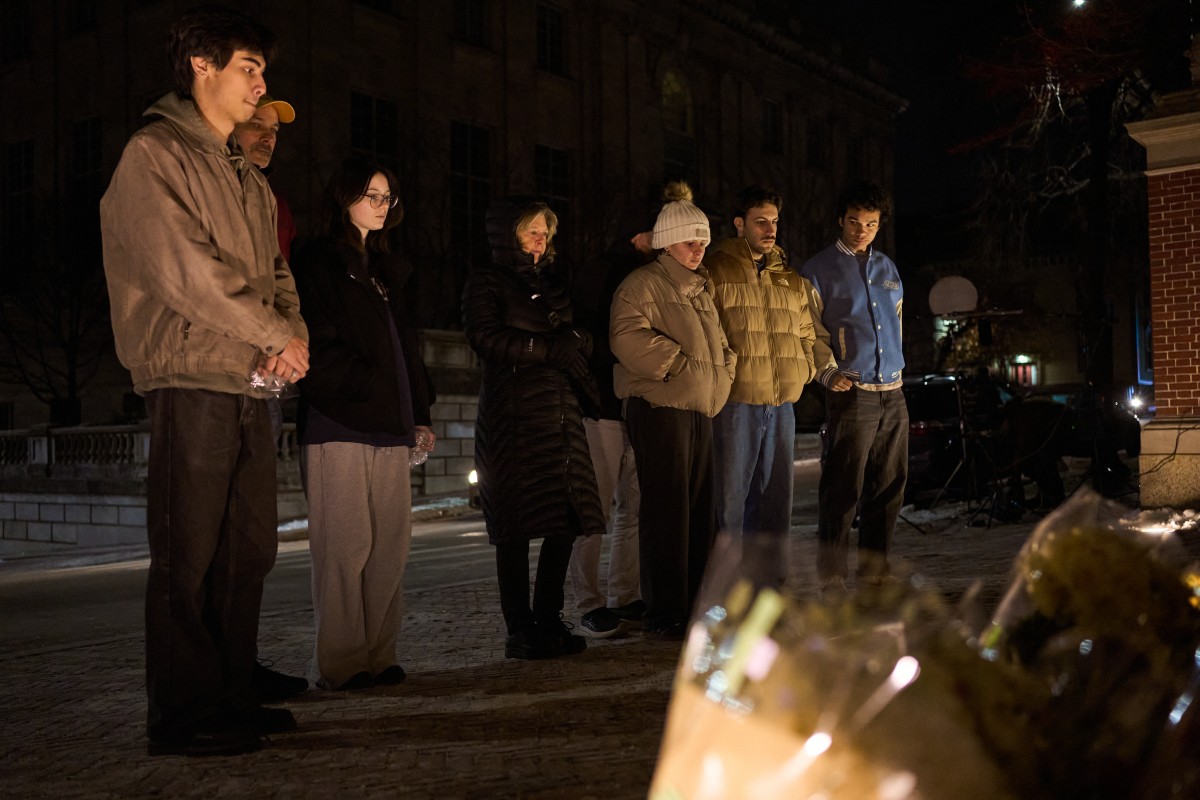
According to the statement, investigators are “seeking the public’s help to identify and speak with an individual” who was seen “near” the suspect at the time of the attack.
The Providence Police Department in Rhode Island released three photos of the person of interest, whose face has been blurred. In the images, the individual is wearing navy blue clothing, what appears to be a green hood, and carrying a light-colored backpack.
Earlier, authorities had released several photos and videos of a suspect described as “approximately 5 feet 8 inches tall, with a stocky build,” dressed in dark clothing, with their face covered by a surgical mask and wearing a beanie. The suspect’s identity remains unknown.
Authorities are offering a $50,000 reward for any information leading to the identification, arrest, and conviction of the person responsible for the killings, who is considered armed and dangerous.
The gunman opened fire on Saturday at Brown University’s engineering and physics building, where exams were being held, killing students Ella Cook and Mukhammad Aziz Umurzokov. The names of the nine people injured have not been released.
International
Police investigate deaths of Rob Reiner and wife as apparent homicide
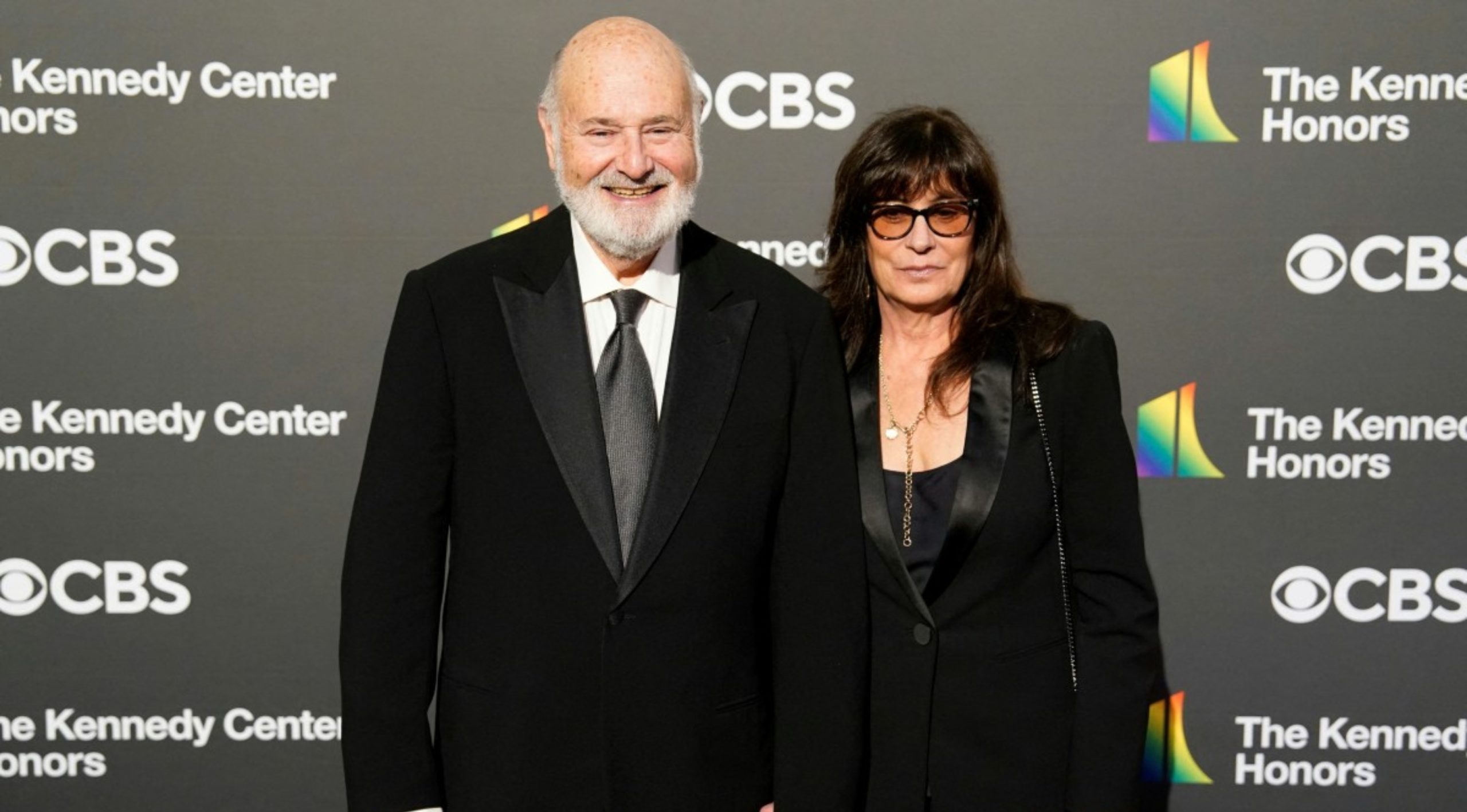
The Los Angeles Police Department (LAPD) is investigating the deaths of Hollywood actor and filmmaker Rob Reinerand his wife as an “apparent homicide,” amid a wave of tributes to the director of classics such as When Harry Met Sally.
According to U.S. media reports on Sunday, Rob Reiner and Michele Singer Reiner were found dead at their Los Angeles mansion with what appeared to be stab wounds.
Several political figures shared messages of condolence following the reported deaths of the director of A Few Good Menand his wife.
While the LAPD did not officially confirm the identities of the victims, it stated that homicide detectives were dispatched to the Reiner residence.
“At this time, no additional details are available and the investigation into an apparent homicide is ongoing,” the Los Angeles Police Department said in a statement posted on social media.
LAPD Deputy Chief Alan Hamilton told reporters that no arrests have been made and that no individuals are currently being questioned as suspects.
“I’m not going to confirm whether anyone is being questioned at this moment or not. We are going to try to speak with as many family members as we can,” Hamilton said.
CNN reported that a family spokesperson confirmed the deaths of Reiner and his wife.
California Governor Gavin Newsom, former U.S. President Barack Obama, and former Vice President Kamala Harrisissued statements expressing their condolences.
-

 Central America3 days ago
Central America3 days agoPanama seizes over three tons of drugs hidden in Caribbean port container
-

 International2 days ago
International2 days agoPolice investigate deaths of Rob Reiner and wife as apparent homicide
-

 International4 days ago
International4 days agoSeveral people shot in attack on Brown University campus
-

 Central America2 days ago
Central America2 days agoOAS urges swift recount in Honduras as election results remain uncertain
-
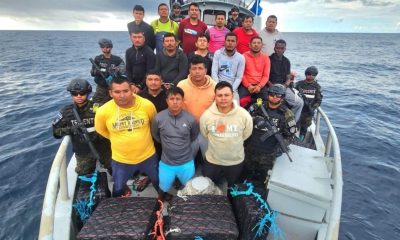
 Central America1 day ago
Central America1 day agoEl Salvador ranks among top countries in the Americas in fight against organized crime
-

 Central America1 day ago
Central America1 day agoBukele says AI partnership with xAI will transform public education in El Salvador
-

 International4 days ago
International4 days agoU.S. and Mexico Reach Deal to Address Water Deficit Under 1944 Treaty
-

 International3 hours ago
International3 hours agoRubio rules out 2028 presidential bid if Vance runs
-
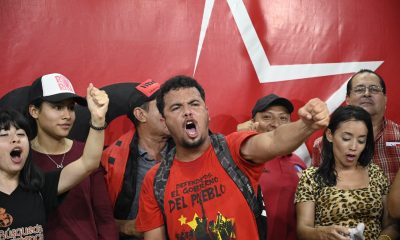
 Central America3 hours ago
Central America3 hours agoArrests and clashes in Tegucigalpa as vote count continues after Honduras election
-
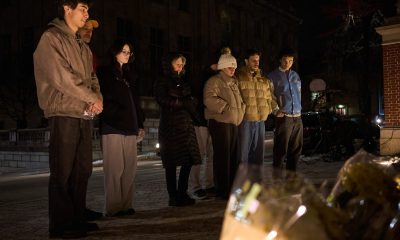
 International3 hours ago
International3 hours agoAuthorities search for armed and dangerous suspect in fatal Brown University attack

























